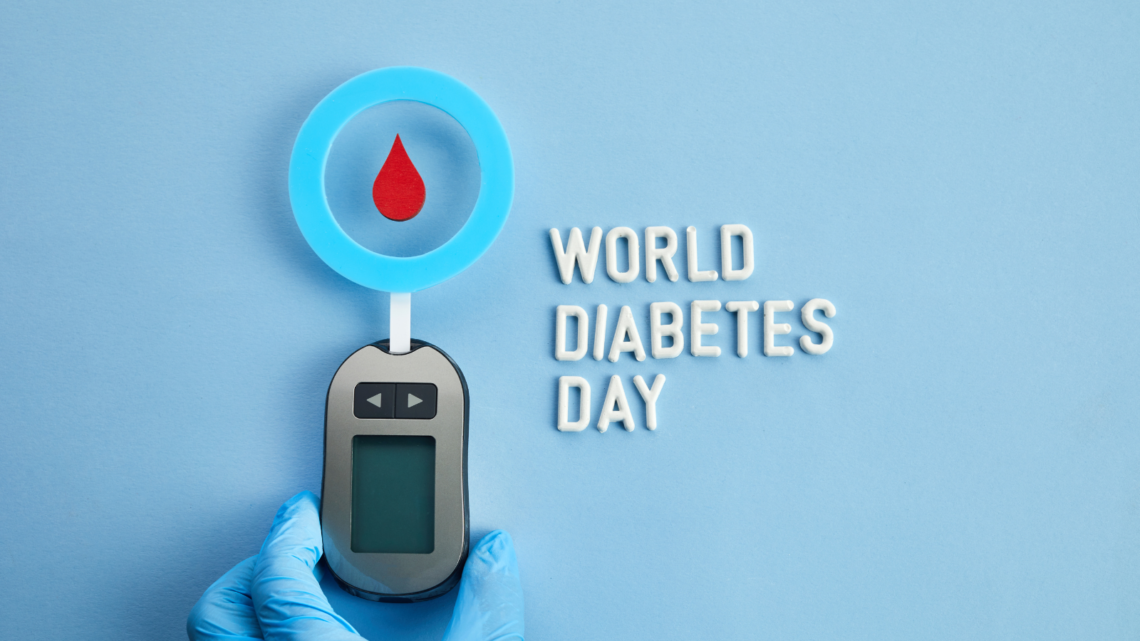-
World Diabetes Day
World Diabetes Day, observed on November 14th, stands as a testament to the collective will to combat a pervasive and escalating global health crisis. As we recognize this day, it is imperative to absorb and address the sobering statistic that 1 in 10 adults worldwide are now living with diabetes. This figure isn’t just a number—it’s a mosaic of individual stories, families, and communities grappling with the implications of a chronic condition that knows no borders. Type 2 diabetes, representing over 90% of these cases, is often termed a lifestyle disease, precipitated by factors such as obesity, insufficient physical activity, and poor diet. Unlike type 1 diabetes, which is primarily…
-
Tips to Help You Manage Diabetes
If you’ve just been diagnosed with diabetes, it can be tough to navigate – at least initially. For many, managing diabetes means having to make lifestyle changes; and while it’s certainly not a death sentence, it can still be a matter of life or death if you don’t take the appropriate measures to keep yourself healthy. The most common form of diabetes is Type II diabetes. Type II diabetes occurs when the body doesn’t use insulin properly – also known as insulin resistance. This can lead to a number of health problems including heart disease, stroke, neuropathy, and of course high blood sugar. Below are some important steps that you…
-
Complications Associated with Diabetes
If you have diabetes, the you know the importance of proper management and making sure your diabetes is under control. If it is left untreated or not properly managed, your risk of developing diabetes-related complications can increase exponentially – and there are many complications that can occur. Among some of the most common complications that are associated with diabetes include heart disease and stroke, kidney disease, eye damage, and nerve damage (also known as neuropathy), just to name a few. Below we take a look at the link between diabetes and these complications that can occur, and the steps you need to take to reduce your risk. Heart Disease and…
-
Type 2 Diabetes on the Rise
Type 2 diabetes is on the rise globally, and health experts are now worried that there may not be enough insulin to go around to those who need it – this according to a new study that concluded on Wednesday. Diabetes now affects as many as 9% of patients worldwide, which is a 5% increase compared to the 1980s, and researchers say they expect the amount of insulin that is needed to effectively treat type 2 diabetes will rise by more than 20% over the next 12 years. The vast majority of those diagnosed with diabetes are diagnosed with Type 2, which is linked to both lifestyle (such as lack…
-
Type 1 and Type 2 Diabetes
There are approximately 11 million Canadians currently living with diabetes, and someone new is diagnosed every 3 minutes. As many as 6 million Canadians have yet to be diagnosed with this chronic disease or are living with what’s known as “prediabetes.” During the prediabetes phase, your blood sugar reaches higher than normal levels but not quite high enough to be considered diabetic. However, research has also shown that certain complications linked to diabetes, such as heart disease, can happen as early as the prediabetic phase, therefore it’s important to have regular checkups with your physician and take any precautions that they recommend, such as changing your diet, checking your blood…
-
Dealing with Diabetes During the Holidays
Preparing for the upcoming holidays can be difficult, especially if you’re trying to watch your waistline. The holiday season can also be difficult for individuals who suffer from certain health conditions – for example, diabetes. If you happen to have your diabetes under control, then indulging in some holiday food shouldn’t be a problem. However, if you do not have your diabetes well managed and your blood sugar levels tend to be all over the map with large spikes or low drops, you will want to take extra precautions. While the holidays are usually a time for people to stay home and relax as much as possible, it’s important for…
-
Recognizing the Signs of Dehydration
Dehydration is a condition that occurs when the body loses more fluids than it takes in, resulting in an inadequate amount of water and other fluids necessary for normal bodily functions. Water is essential for a variety of physiological processes, including maintaining cellular structure, regulating body temperature, and enabling the transportation of nutrients and waste products. Given that the human body is composed of approximately 60% water, the significance of maintaining adequate hydration levels cannot be overstated. In this comprehensive article, we will explore the various signs of dehydration, the physiological mechanisms underlying this condition, and its potential impact on health. By understanding the signs of dehydration and the importance…
-
Summer’s Heat: Health Risks and Impacts
The human body is remarkably adept at regulating its internal temperature, but extreme heat can overwhelm these mechanisms, leading to a range of health issues. When ambient temperatures rise, our bodies respond by increasing blood flow to the skin and producing sweat to facilitate evaporative cooling. However, these processes can be compromised in certain conditions, such as high humidity or dehydration, potentially resulting in heat-related illnesses. One of the most common heat-related health concerns is heat exhaustion. This condition occurs when the body loses excessive amounts of water and salt through sweating. Symptoms of heat exhaustion include heavy sweating, weakness, dizziness, headache, nausea, and muscle cramps. If left untreated, heat…
-
Healthy Foods to Eat in the Summer
When it’s warm out, the last thing anyone wants to do is stand over a hot oven or stove cooking – and the warmer the weather, the more tempting it can be to want to grab something quick and easy, which might not always be the healthiest. For example, getting something from a fast food restaurant, which could be loaded with grease, bad carbohydrates and sugar – all things you want to avoid to ensure optimal health and reduce the risk of potential health problems like weight gain, diabetes, and cardiovascular disease. Before we dive into the topic of food, it’s a good time to remind everyone about the importance…
-
Protecting Your Health in a Heat Wave
Environment Canada recently issued a Special Weather Statement warning about a heat wave expected to affect various regions of British Columbia, with temperatures forecasted to soar up to a staggering 39 degrees Celsius in certain areas. This prolonged period of extreme heat is anticipated to extend through to next week, posing significant health risks, especially to vulnerable populations such as the elderly, children, and those with pre-existing health conditions. As the mercury rises, it becomes crucial to adopt preventive measures to safeguard one’s health and well-being. This article aims to provide comprehensive guidelines on how to navigate this scorching weather safely, highlighting essential tips and reminders to ensure you remain…




